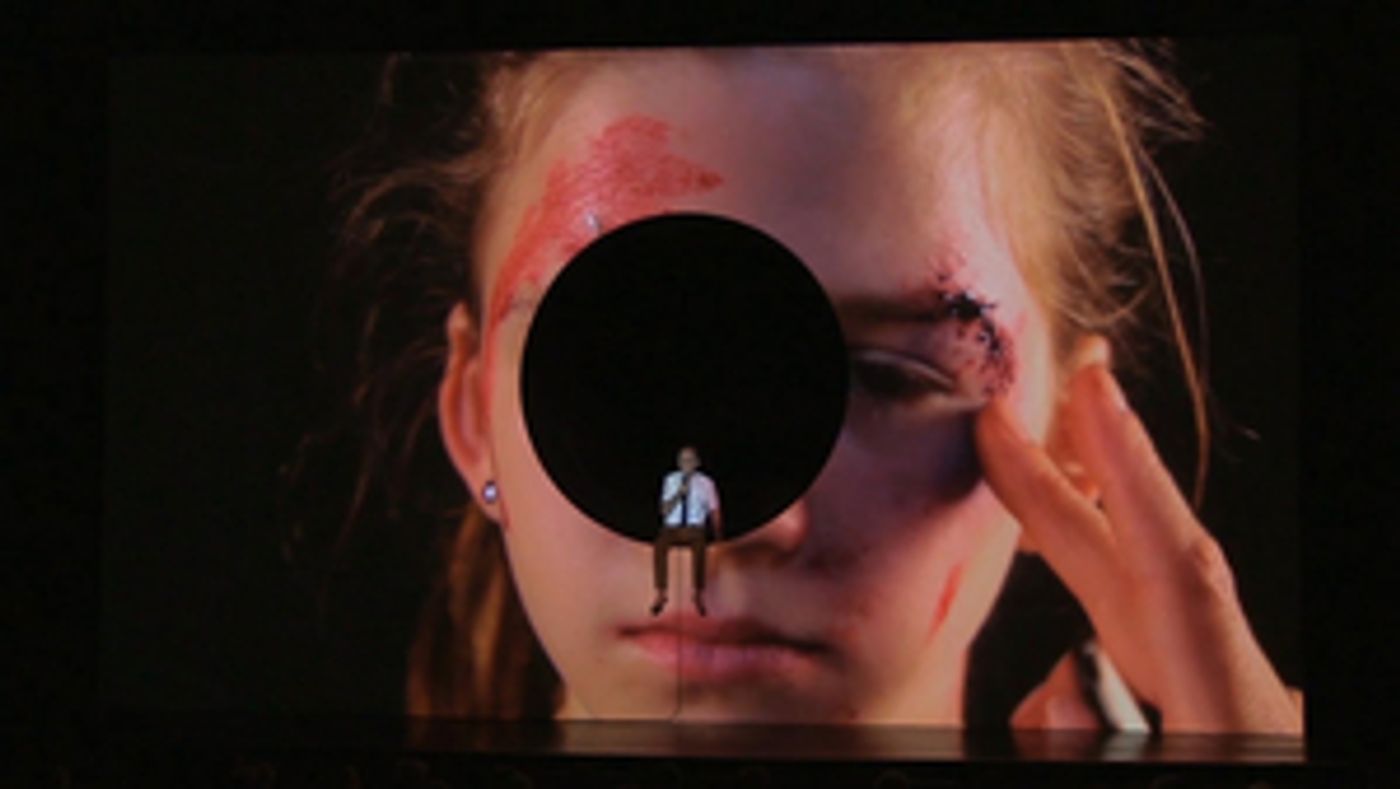Review: Daniel Fish's WHITE NOISE Experiments with Adaptation

After his triumphant, Tony-award winning revival of OKLAHOMA!, Daniel Fish had a lot to live up to when he announced he would be directing an adaptation of WHITE NOISE. To raise the stakes, he is also the author of the piece, which he described as "freely adapted from the Don DeLillo novel."
The source material, a beloved novel of the late 80s that explores American consumerism, academia, Hitler fascination, environmental disaster, simulations, government intervention, opioid addition, and most notably, the fear of death, certainly gave Fish quite a bit to work with. However, instead writing a straightforward adaptation of the novel, he instead has created an experimental stage piece made up almost entirely of lists.
To be fair, the novel has quite a number of lists, but Fish has made the bold choice to uses these lists as basically the only text of his adaptation. Although there are slight indications of characters and plot points hidden within the litany of objects and adjectives, for the most part, Fish's WHITE NOISE is a 70 minute list spoken by a single actor.
Instead of the various characters from the novel, Fish has reduced us to just one: the protagonist Jack Gladney, who here is located in the middle of a screen, sitting in a hole. The set, by Andrew Leiberman is a movie screen, but with a large circular orifice in the middle that our performer, Bruce McKenzie, inhabits. McKenzie and his never-ending list are not alone however, there are two other very important presences: the thought-provoking video design by Jim Findlay and the haunting live music by Bobby Previte.
While McKenzie rattles of a catalog of objects and emotions, Previte uses percussion to make deeply unsettling music and Findlay's video cycles through children introducing themselves, sometimes speaking German, sometimes wearing lederhosens; at one point there is a split-screen of a late career Elvis singing paired with Hitler giving a speech (in case you forgot, Jack Gladney is an academic who founded Hitler Studies).
In general, this adaptation is almost unwatchable for anyone unfamiliar with the novel. If you go in not having read the novel, you likely will get nothing out of this piece, and will leave angry, annoyed, confused, and with a headache. Although Fish slips in the plots events--sometimes very effectively, as with the video image of a child moving a fog machine to represent the Toxic Airborne Event, followed by real fog emanated from the hole in the screen--for the most part, this adaptation is incredibly hard to follow, often feeling completely devoid of plot and character.
If you know what to look for, it is all there. The wives, the academic fetishism, the excessive consumerism, the adultery, the murder, and child on the tricycle are all mentioned, but are hidden deep within lists, video, and sound such that they are nearly impossible to find unless you know what to listen for. Fish has clearly prioritized fans of the novel, leaving everyone else to struggle to make this piece cohere into something even resembling a narrative.
As a director, Fish is all about subtlety and undercurrents, and he does slowly and ingeniously integrate the themes into this adaptation, just not through the text. This is most visible (literally) in the video, where the children gradually become bloody and bruised, which is at first alarming, but then we see adult hands of makeup artists putting the fake blood and makeup on the children, as if to show us what is under the façade.
Despite these well-thought out and evocative gestures, WHITE NOISE asks far too much of its audience. From a literary perspective, Fish has deconstructed a text in a noteworthy way that questions how we adapt a text sans narrative, and this is deserving of praise. However, the piece is almost unwatchable for audience members; it is extremely difficult to pay attention to--and to remain interested in--a 70 minute list with vague, somewhat related video and unsettling music.
Daniel Fish has done something remarkable here with WHITE NOISE, but it feels more like an experiment in adaptation than an actual text to be performed and to make people sit through. As always, getting to watch Fish's mind in action is quite the thrill, but sadly this particular endeavor is not something most people would want to experience.
Reader Reviews
Videos

